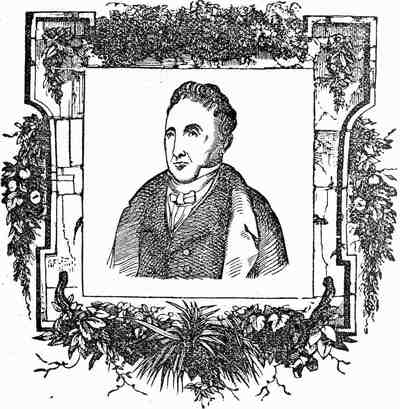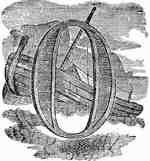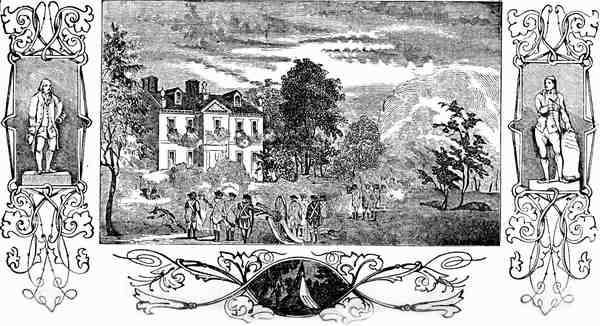Thrilling Incidents In American History
• Preface
Revolutionary War
• Opening Of The Revolution
• The Boston Massacre
• Affair of the Sloop Liberty
• Affair of the Gaspee
• The Tea Riot
• The Boston Port Bill
• The First Continental Congress-Consequent Parliamentary proceedings
• Organization of the Minute-Men
• Patrick Henry-Second Provincial Congress-First Military Enterprise
• Battles of Lexington and Concord
• Battle of Bunker's Hill
• Capture of Ticonderoga
• Second Continental Congress-Washington's Appointment
• Siege of Boston
• Incidents at the Evacuation of Boston
• Burning of Falmouth
• Arnold's Expedition to Quebec
• Siege of Quebec, and Death of Montgomery
• Scenes at Quebec during the Siege
• Expedition against Charleston
• The Declaration of Independence
• The Battle of Long Island
• Washington's Retreat through New Jersey-Capture of General Lee
• Battle of Trenton
• Battle of Princeton
• Capture of General Prescott
• Battle of Brandywine
• Battle of Germantown
• Battle of Red-Bank
• Attack on Fort Mifflin-Retirement of the Army to Valley Forge
• Battle of Bennington
• Murder of Miss M'Crea
• Battle of Stillwater
• Battle of Bemis' Heights, and Retreat of Burgoyne
• Capture of Forts Clinton and Montgomery
• Surrender of Burgoyne
• The Treaty with France
• Attack on Savannah, and Death of Pulaski
• Storming of Stony Point
• General Sullivan's Campaign against the Mohawks
• Tarleton's Quarters
• Battle of Camden, and Death of De Kalb
• Arnold's Treason
• The Loss of the Randolph
• The British Prison-Ships
• Capture of the Serapis
• Putnam's Feat at Horseneck
• Battle of Eutaw Springs
• Wayne's Charge at Green Spring
• Capture of the General Monk
• The Mutinies
• Battle of the Cowpens
• Capture of New London
• Massacre of Wyoming
• Surrender of Cornwallis
War With France
• Capture of L'Insurgente
• The Constellation and Vengeance
War With Tripoli
• Burning of the Philadelphia
• Bombardment of Tripoli
• Loss of the Intrepid
• Expedition of General Eaton
Second War With England
• Battle of Tippecanoe
• Capture of the Guerriere
• Tragical Affair of an Indian Chief
• Battle and Massacre at the River Raisin
• Captain Holmes's Expedition
• Capture of the Caledonia and Detroit
• The Wasp and Frolic
• Gallant Conduct of Lieutenant Allen at the Capture of the Macedonian
• Capture and Destruction of the Java
• Siege of Fort Meigs
• Capture of York, and Death of General Pike
• Defence of Sackett's Harbour
• Defence of Fort Stephenson
• Battle of Lake Erie
• Battle of the Thames
• Gallant Action of Commodore Chauncey under the guns of Kingston Citadel
• The Sacking of Hampton
• Capture of the Peacock
• Massacre at Fort Mimms
• Surrender of Weatherford
• Battle of Niagara
• BattIe of New Orleans
War With Mexico
• Battle of Palo Alto
• Battle of Resaca de la Palma
• Capture of Monterey
• Battle in the Streets of Monterey
• Thrilling Scenes in the Battle of Buena Vista
• Bombardment of Vera Cruz
• Battle of Cerro Gordo
• Battles of Contreras and Churubusco
• Storming of Chapultepec


General La Fayette
BATTLE OF GERMANTOWN.
 N the evening after the battle of Brandywine, General Howe sent a
party to
Wilmington, who seized in bed Mr. M'Kinlay, governor, of the state of Delaware,
and took a shallop lying in the rivulet loaded with the rich effects of
some of the inhabitants, together with the public records of the county, and
other valuable and important property.
N the evening after the battle of Brandywine, General Howe sent a
party to
Wilmington, who seized in bed Mr. M'Kinlay, governor, of the state of Delaware,
and took a shallop lying in the rivulet loaded with the rich effects of
some of the inhabitants, together with the public records of the county, and
other valuable and important property.
General Wayne, with a detachment of fifteen hundred men, had taken post in the woods on the left of the British army, with the intention of harassing it on its march. On the evening of the 20th of September, General Grey was despatched to surprise him, and successfuHy executed the enterprise; killing or wounding, chiefly with the bayonet, about three hundred men, taking nearly one hundred prisoners, and making himself master of all their baggage. General Grey had only one captain and three privates killed, and four wounded.
On the evening of the 18th, Congress left Philadelphia for the second time, and proceeded first to Lancaster, and afterwards to York. On the afternoon of the 22d, and early on the 23d of September, Sir William Howe, contrary to the expectation of the American commander-in-chief; crossed the Schuylkill at Fatland and Gordon's Ford. The main body of his army encamped at Germantown, a long village, seven miles from Philadelphia; and, on the 26th, with a detachment of his troops, he took peaceable possession of the city, where he was cordially received by the Quakers and other royalists. During these movements, both armies were much incommoded by cold and heavy rains.
On receiving information of the success of the royal army under his brother at Brandywine, Admiral Lord Howe left the Chesapeake and steered for the Delaware, where he arrived on the 8th of October. As soon as General Howe had gained possession of Philadelphia, he began to clear the course of the river, in order to open a free communication with the fleet.
The Americans had laboured assiduously to obstruct the navigation of the Delaware; and, for that purpose, had sunk three rows of chevaux-de-frise, formed of large beams of timber bolted together, with strong projecting iron spikes, across the channel, a little below the place where the Schuylkill falls into the Delaware. The upper and lower rows were commanded by fortifications on the banks and islands of the river, and by floating batteries.
While the detachments employed in assisting to clear the course of the river weakened the royal army at Germantown, General Washington, who lay encamped at Skippach Creek, on the north side of the Schuylkill, about seventeen miles from Germantown, meditated an attack upon it. Germantown consisted of one street about two miles long; the line of the British encampment bisected the village almost at right angles, and had its left covered by the Schuylkill. General Washington having been reinforced by fifteen hundred troops from Peekskill, and one thousand Virginian militia, marched from Skippach Creek on the evening of the 3d of October, and at dawn of day next morning attacked the royal army. After a smart conflict he drove in the advanced guard, which was stationed at the head of the village, and, with his army divided into five columns, prosecuted the attack; but Lieutenant-Colonel Musgrave of the 40th regiment, which had been driven in, and who had been able to keep five companies of the regiment together,

Battle of Germantown
threw himself into a large stone house in the village, which stood in front of the main column of the Americans, and there almost a half of General Washington's army was detained for a considerable time. Instead of masking the house with a sufficient force, and advancing rapidly with their main body, the Americans attacked the house, which was obstinately defended. This saved the British army; for the critical moment was lost in fruitless attempts on the house; the royal troops had time to get under arms, and be in readiness to resist or attack as circumstances required. General Grey came to the assistance of Colonel Musgrave; the engagement for some time was general and warm; at length the Americans began to give way, and effected a retreat with all their artillery. The morning was very foggy, a circumstance which had prevented the Americans from combining and conducting their operations as they otherwise might have done, but which now favoured their retreat by concealing their movements.
In this engagement the British had six hundred men killed or wounded; among the
slain were Brigadier-General Agnew and Colonel Bird, officers of distinguished
reputation. The Americans lost an equal number in killed and wounded, besides
four hundred who were taken prisoners. General Nash, of North Carolina, was
among those who were killed. After the battle, General Washington returned to
his encampment at Skippach Creek.